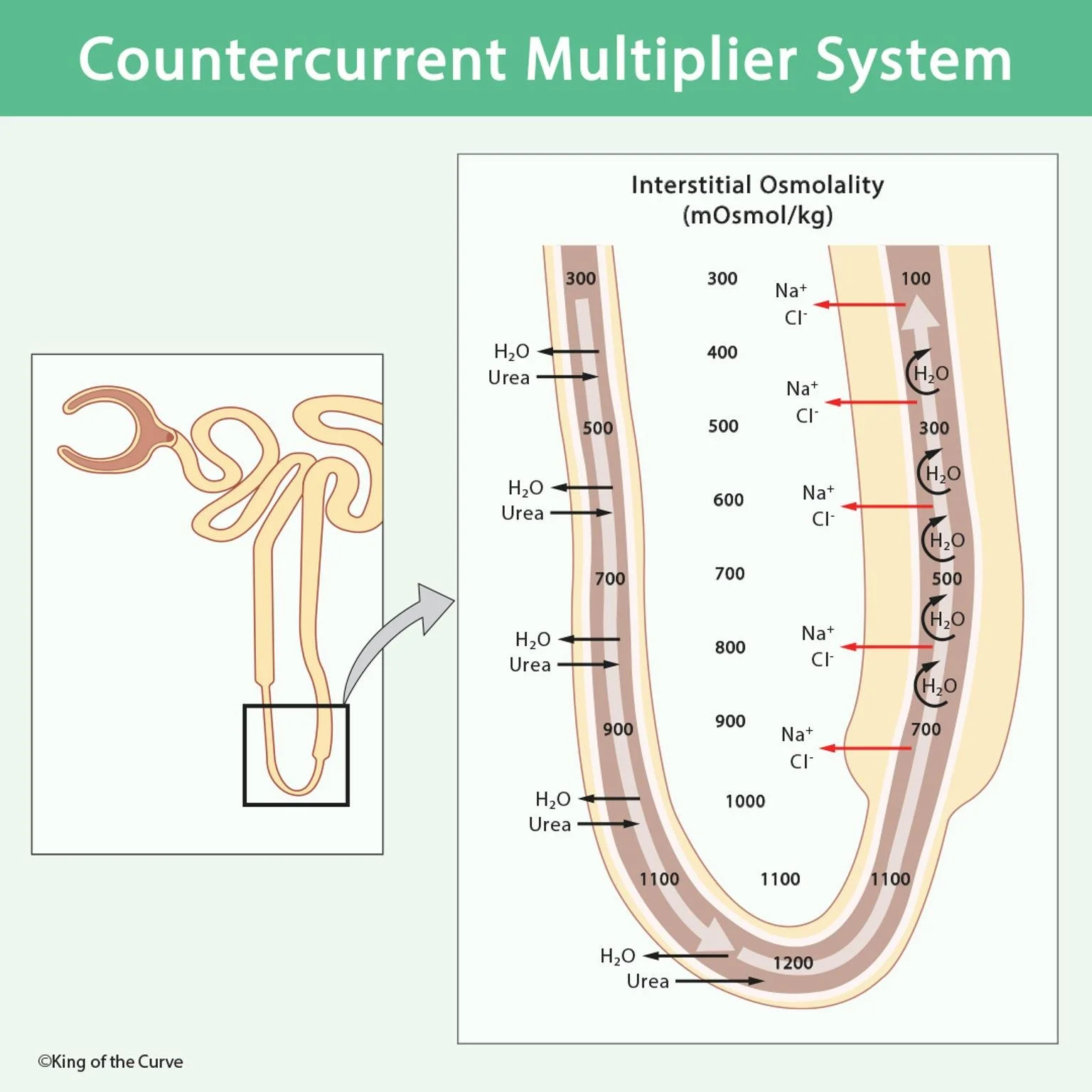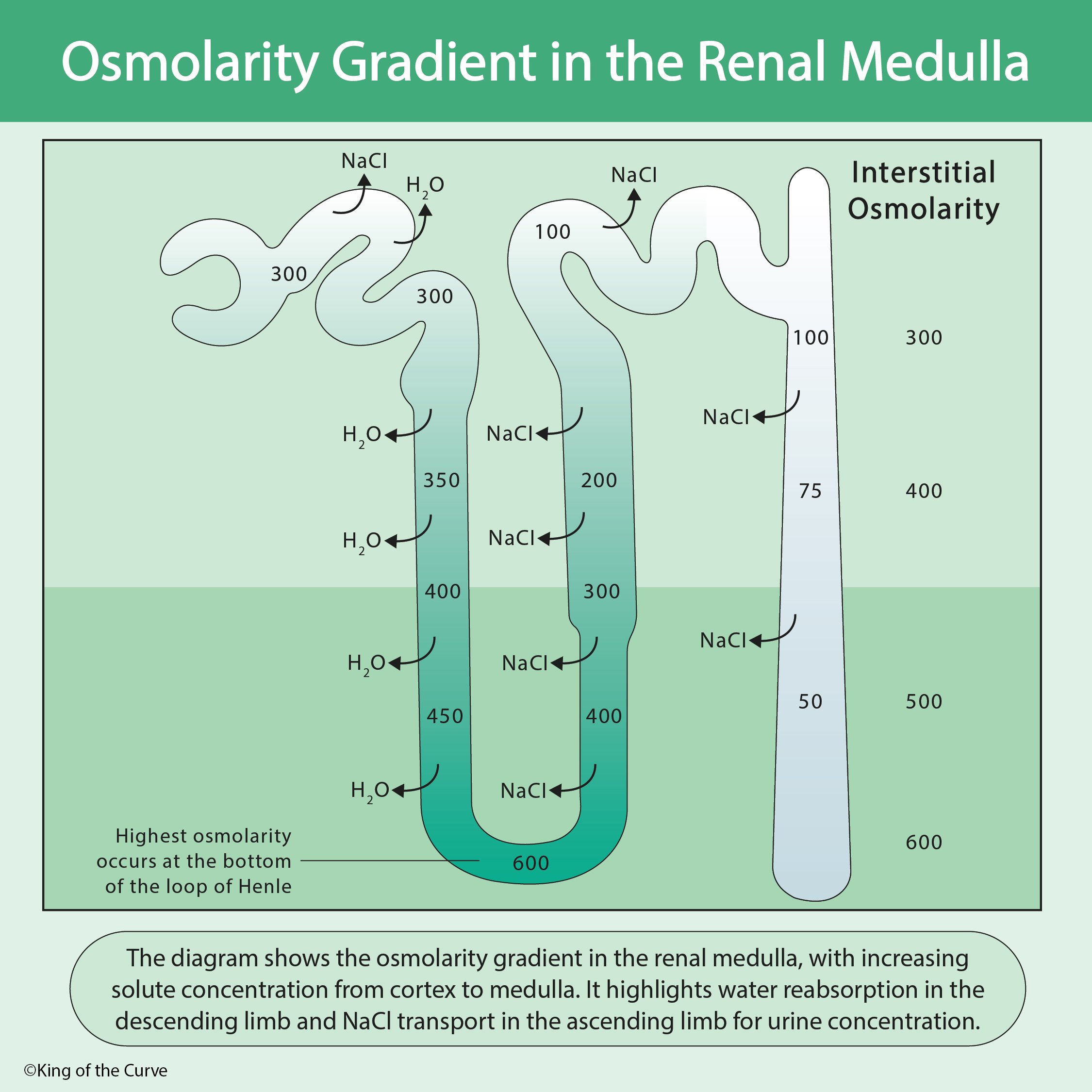
💧 Understanding the Countercurrent Multiplier System
Learn how the countercurrent multiplier system in the loop of Henle creates the medullary osmotic gradient, enabling the kidneys to concentrate urine and conserve water. Includes structure, step-by-step process, and clinical significance.

The Importance of Renal Physiology – A Key Concept for the DAT
The kidneys are vital organs responsible for filtering blood, maintaining homeostasis, and regulating blood pressure. Their ability to remove waste, balance electrolytes, and control fluid levels makes them a crucial topic on the DAT biology section.
In this blog, we’ll break down renal physiology, focusing on the nephron, filtration, and urine formation.
